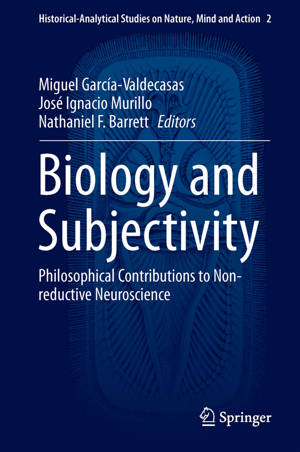
- Retrait gratuit dans votre magasin Club
- 7.000.000 titres dans notre catalogue
- Payer en toute sécurité
- Toujours un magasin près de chez vous
- Retrait gratuit dans votre magasin Club
- 7.000.0000 titres dans notre catalogue
- Payer en toute sécurité
- Toujours un magasin près de chez vous
Biology and Subjectivity
Philosophical Contributions to Non-Reductive Neuroscience
Description
Some may consider that the language and concepts of philosophy will eventually be superseded by those of neuroscience. This book questions such a naïve assumption and through a variety of perspectives and traditions, the authors show the possible contributions of philosophy to non-reductive forms of neuroscientific research. Drawing from the full range and depth of philosophical thought, from hylomorphism to ethics, by way of dynamical systems, enactivism and value theory, amongst other topics, this edited work promotes a rich form of interdisciplinary exchange.
Chapters explore the analytic, phenomenological and pragmatic traditions of philosophy, and most share a common basis in the Aristotelian tradition. Contributions address one or more aspects of subjectivity in relation to science, such as the meaning and scope of naturalism and the place of consciousness in nature, or the relation between intentionality, teleology, and causality. Readers may further explore the nature of life and its relation to mind and then the role of value in mind and nature.
This book shows how philosophy might contribute to real explanatory progress in science while remaining faithful to the full complexity of the phenomena of life and mind. It will be of interest to both philosophers and neuroscientists, as well as those engaged in interdisciplinary cooperation between philosophy and science.
Spécifications
Parties prenantes
- Editeur:
Contenu
- Nombre de pages :
- 197
- Langue:
- Anglais
- Collection :
- Tome:
- n° 2
Caractéristiques
- EAN:
- 9783319305011
- Date de parution :
- 02-09-16
- Format:
- Livre relié
- Format numérique:
- Genaaid
- Dimensions :
- 156 mm x 234 mm
- Poids :
- 467 g

Les avis
Nous publions uniquement les avis qui respectent les conditions requises. Consultez nos conditions pour les avis.





